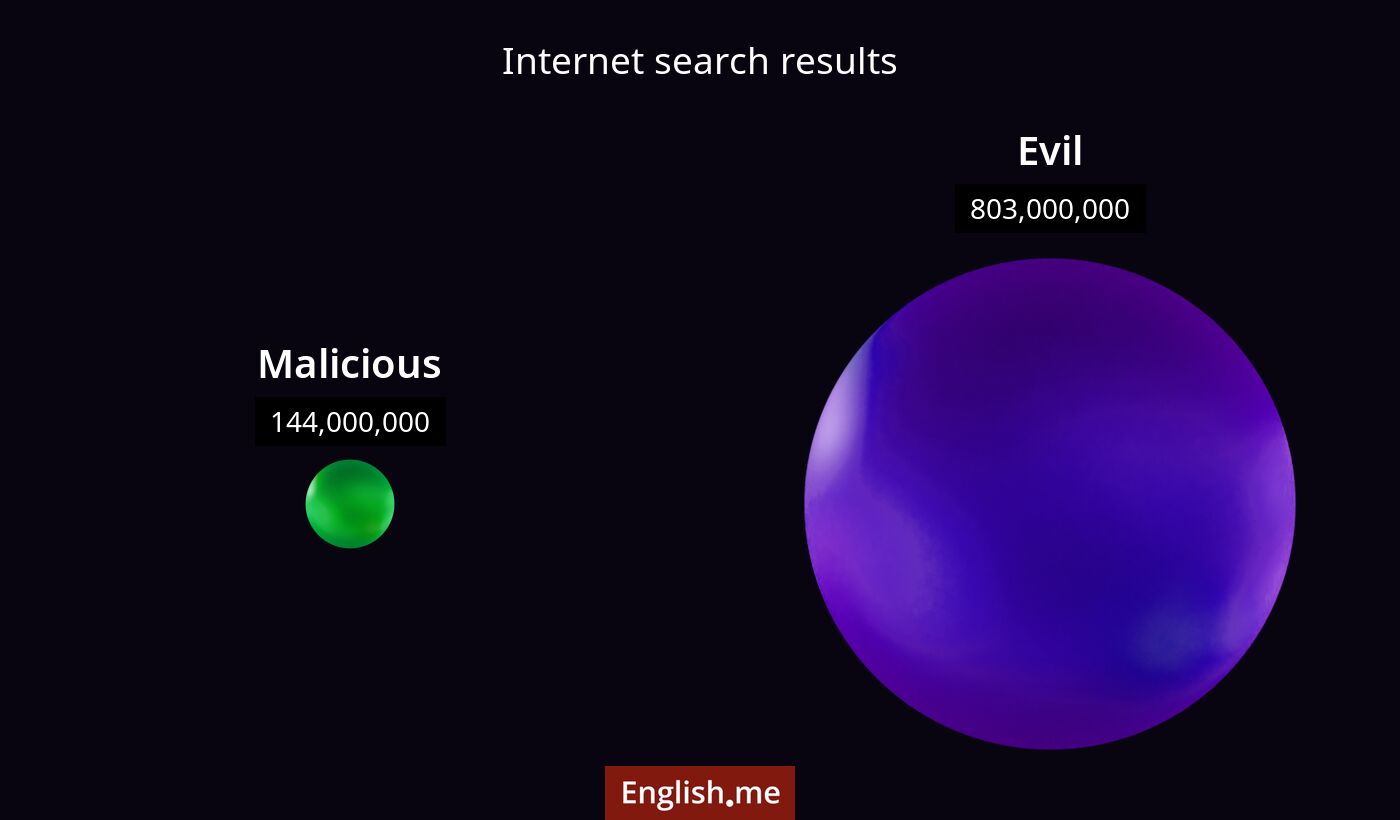Exploring dark nuances: "malicious" vs. "evil"
Reviewed and edited by  Lloyd Cooper 07/10/2024, 22:34
Lloyd Cooper 07/10/2024, 22:34
English.me team member

 What is similar?
What is similar?
Both words describe actions, intentions, or behaviors that are harmful or morally wrong. They can describe people who wish to cause pain or trouble to others.
 What is different?
What is different?
Malicious often implies a deliberate intention to harm or upset someone, usually in a spiteful or petty way, whereas evil suggests a more general moral wrongdoing, wickedness, or deep immorality. Evil is often used in a broader or more absolute sense.
 Which one is more common?
Which one is more common?

 Examples of usage
Examples of usage
Malicious- The hacker launched a malicious attack on the website.
- Her malicious gossip caused a lot of distress among her colleagues.
- He was fired for making malicious comments about his boss.
- The dictator was considered one of the most evil men in history.
- Some people believe that certain places are inhabited by evil spirits.
- The movie vividly portrays the battle between good and evil.

 English
English español
español française
française italiano
italiano deutsche
deutsche 日本語
日本語 polski
polski česky
česky svenska
svenska Türkçe
Türkçe Nederlands
Nederlands